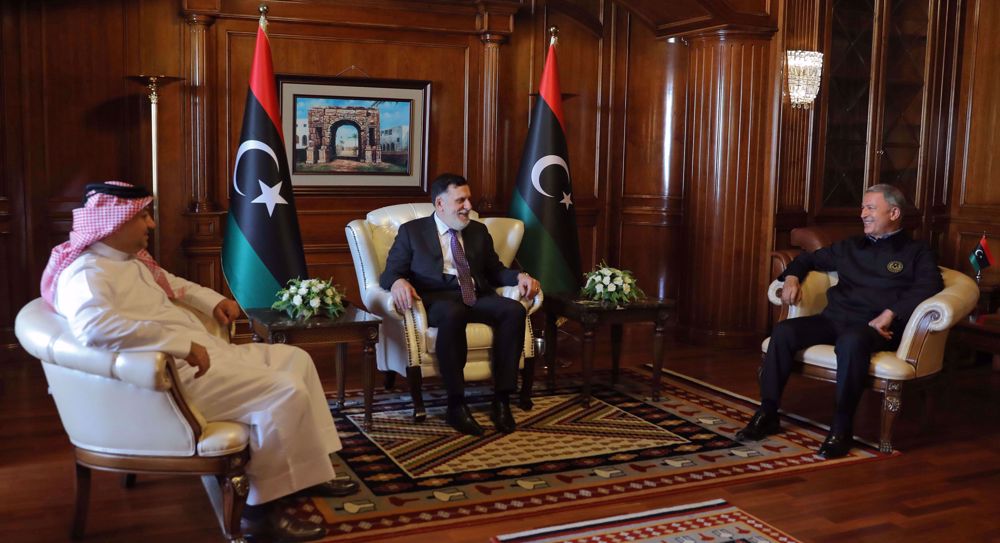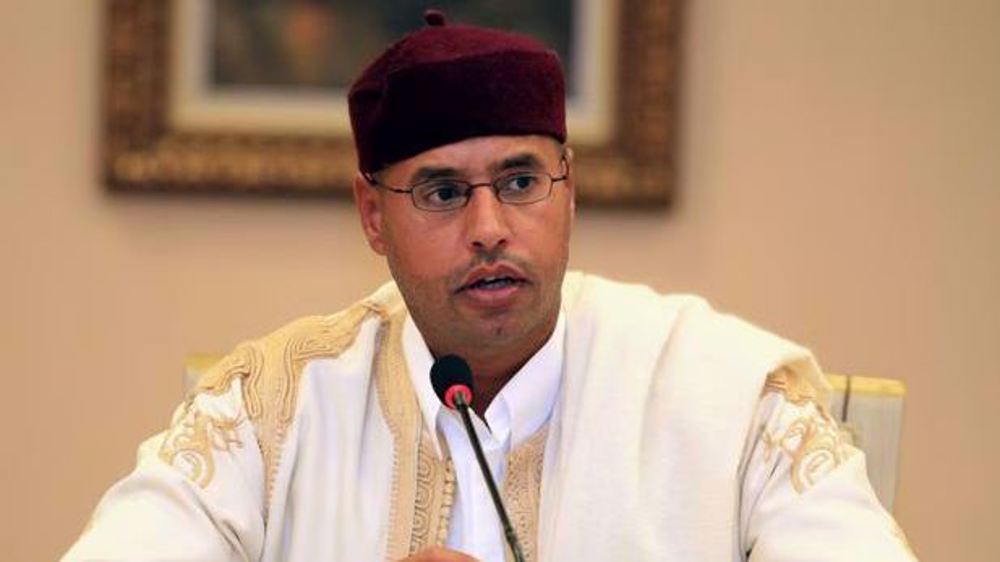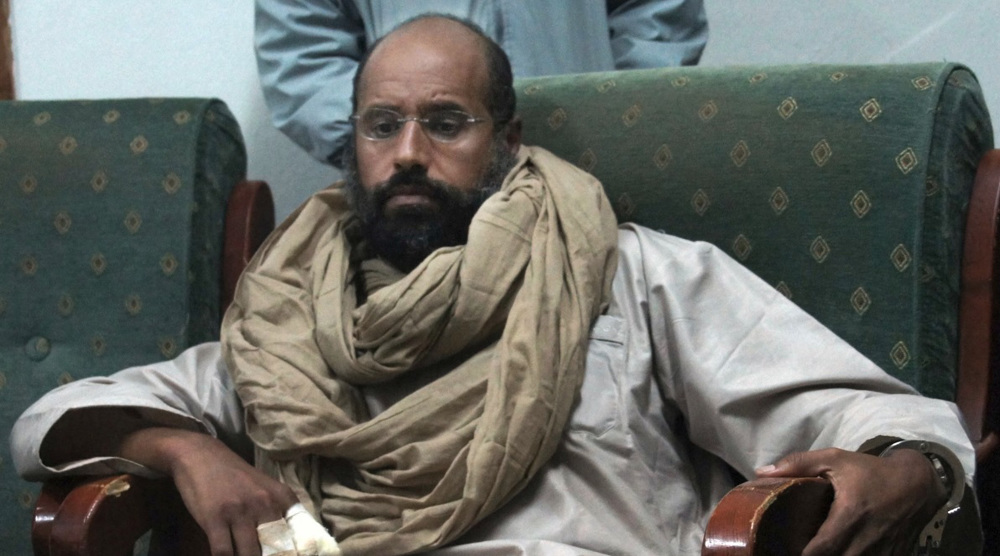Report: Turkey, Qatar, Libya agree to establishment of Turkish base in Misrata
Turkey, Qatar, and Libya’s internationally-recognized government, known as the GNA, have allegedly signed a trilateral agreement on the establishment of a Turkish naval base in Misrata in northwestern Libya.
The Saudi-owned Al Arabiya TV channel cited unidentified sources as saying that the agreement also stipulated “the creation of a trilateral military coordination center in the city of Misrata, as well as the creation of training centers and headquarters for GNA fighters in Doha.”
Meanwhile, Turkish Defense Minister Hulusi Akar and his Qatari counterpart, Khalid bin Mohamed al-Attiyah, arrived in Tripoli on Monday.
The Turkish Defense Ministry said Akar and Turkish Chief of Staff General Yasar Guler arrived in Tripoli to “observe the operations” under a military cooperation deal signed with Libya last year.
Last November, Turkey signed the Memorandum of Understanding on Security and Military Cooperation and a memorandum of understanding on maritime jurisdiction with the Libyan government.
Since 2014, two rival seats of power have emerged in Libya, namely the internationally-recognized GNA, run by Prime Minister Fayez al-Sarraj, and another group based in the eastern city of Tobruk, supported militarily by strongman Khalifa Haftar’s rebels.
The rebels have been fighting to unseat the GNA with support from the United Arab Emirates, Egypt, and Jordan. But government forces have pushed them as far back as the city of Sirte on the Mediterranean coastline with crucial help from Turkey.
Qatar is a newcomer to the fray. Doha has been involved in a separate dispute with the United Arab Emirates and three other Arab governments since 2015.
Germany backs UN call for demilitarized zone around Sirte
Also on Monday, German Foreign Minister Heiko Maas made an unannounced visit to Libya.
“We see a deceptive calm in Libya right now. Both sides and their international allies are continuing to arm the country on a massive scale and are sticking to preconditions for a ceasefire,” he said.
Maas stressed that the 2020 Berlin Conference on Libya remained the framework for resolving the conflict, and backed a United Nations (UN) proposal for a demilitarized zone around Sirte.
“An end to the oil blockade and a fairer distribution of oil revenues are also crucial for a solution to the conflict in Libya,” he added.
Sirte fell into the rebels' hands in January. The Libyan government has vowed to retake control of the city.
The rebels started the blockade on Libya’s oil industry in January, when they managed to take control of oil export terminals and fields in the east. Libya — which sits atop the largest oil reserves in Africa — has been forced to stop oil production as a result.
Maas also said he would call on his Emirati counterpart during a visit to Abu Dhabi after Libya to use the UAE’s influence with Haftar “in line with the Berlin summit.”
Back in January and in an attempt to help establish a permanent ceasefire in Libya, German Chancellor Angela Merkel hosted a multinational summit involving concerned parties. Leaders and high-ranking officials from Turkey, Russia, Egypt, France, Italy, Britain, and the United States, as well as Haftar and Sarraj, attended the summit.
However, Haftar refused to sign the joint final communiqué, which called for a ceasefire.
Libya first plunged into chaos in 2011, when a popular uprising backed by a NATO intervention led to the ouster of long-time dictator Muammar Gaddafi.
VIDEO | Axis of Resistance stands as multinational front for justice
Swiss academics call for end to research treaty with Israel over Gaza genocide
VIDEO | Israeli regime harasses, tortures Gazans returning through Rafah crossing
Israel faces existential threat of internal collapse before centenary, general says
Police fire tear gas as protests erupt against ICE and Israel at Milan Winter Olympics
UK PM’s chief of staff resigns over appointment of Epstein associate as US envoy
Iran leads Islamic world in electric vehicle motor technology
VIDEO | Pakistan lawmakers reflect on legacy of Iran’s Islamic Revolution











 This makes it easy to access the Press TV website
This makes it easy to access the Press TV website